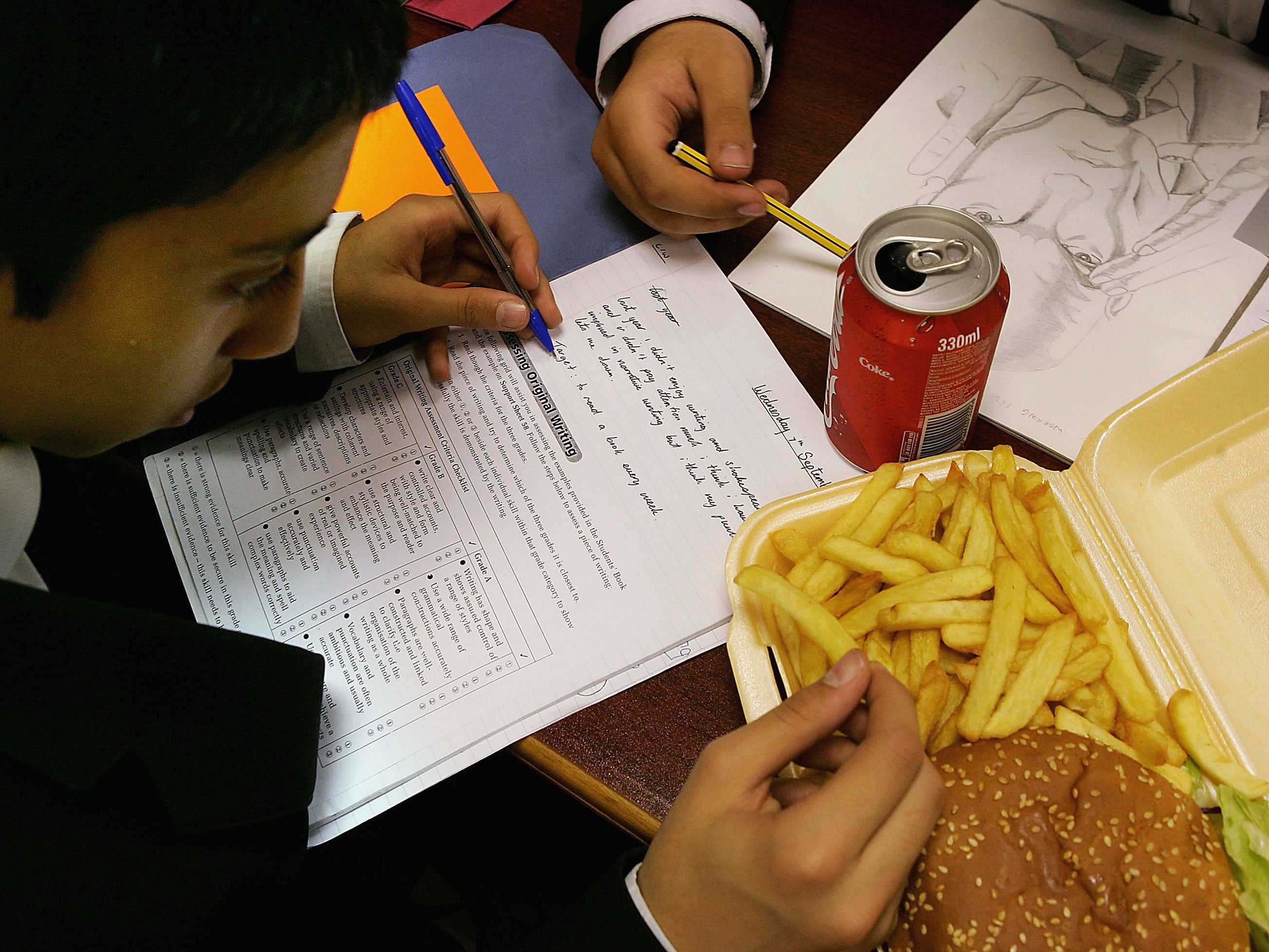Fried and sweet food limited in new school meal plans
Milk will be offered to pupils as part of the new plans

Your support helps us to tell the story
From reproductive rights to climate change to Big Tech, The Independent is on the ground when the story is developing. Whether it's investigating the financials of Elon Musk's pro-Trump PAC or producing our latest documentary, 'The A Word', which shines a light on the American women fighting for reproductive rights, we know how important it is to parse out the facts from the messaging.
At such a critical moment in US history, we need reporters on the ground. Your donation allows us to keep sending journalists to speak to both sides of the story.
The Independent is trusted by Americans across the entire political spectrum. And unlike many other quality news outlets, we choose not to lock Americans out of our reporting and analysis with paywalls. We believe quality journalism should be available to everyone, paid for by those who can afford it.
Your support makes all the difference.The amount of fatty and sweet foods schools can offer pupils is to be drastically cut down as part of new standards unveiled by the Government on Tuesday.
The new rules to be introduced across all maintained schools, new academies, and free schools from January, will see healthier food pushed - including milk, which will be made available to primary and secondary pupils.
Chocolate and other confectionery will be banned entirely from canteens and tuck shops, and will not be included in desserts, cakes or biscuits. Instead, nuts, seeds, vegetables and fruit with no added salt, sugar or fat will be served.
In addition, schools will offer students only two portions of deep-fried, battered, bread-crumb coated, or pastry-based foods each week, according to restrictions outlined by Education Secretary Michael Gove.
Other requirements include serving children a portion of meat, fish, eggs, or beans and one or more portion of vegetables or salad every day. Different varieties of food are also being pushed, with children being given as at least three different fruits and three different vegetables each week.
Students will be allowed to eat only a teaspoon of condiments, such as ketchup, while salt for seasoning will be banned.
Read more: Teachers bring food into school to help hungry pupils
Dietary restrictions in canteens will also stretched to drinks. Water will be encouraged, but often sugary fruit juice portions will be limited to 150ml each, while the sugar and honey in drinks will be cut to 5 per cent.
Guidelines on milk are an important step for the Conservative party, whose reputation on school meals was marred when then-Education Secretary Margaret Thatcher scrapped free school milk for over-sevens in 197 - earning her the nickname "milk-snatcher".
However, there is no suggestion of a return to free milk for all primary school children.
Rules dictating milk replaced old guidelines which saw schools only obliged to serve calcium-rich foods like milk, cheese, yoghurt, fromage frais or custard.
The Department for Education said the new standards proved “extremely popular” in trials with school cooks, and were overseen by an expert panel of cooks, teachers, caterers and dietitians chaired by co-founder of the LEON restaurant chain, Henry Dimbleby.
90 per cent of schools said that the new rules were easier to implement than the previous guidelines.

Mr Dimbleby, who also co-wrote the School Food Plan, which the new guidelines are based on, praised the previous guidelines for "removing the worst foods from children's diets", but said they need to go further so cooks did not feed restricted.
"These standards will preserve the nutritional gains that have already been made in school food while allowing greater flexibility," he said.
Mr Gove mirrored Mr Dimbleby's sentiments, and said: “These new food standards will ensure all children are able to eat healthy, nutritious meals at school,”
”We now have a clear and concise set of food standards which are easier for cooks to follow and less expensive to enforce. Crucially we have achieved this without any compromise on quality or nutrition," he added.
Susan Jebb, professor of diet and population health at the University of Oxford and lead nutritionist on the new measures, said: ”We know that children are continuing to eat too much saturated fat, sugar and salt. It is vital that the food children are offered in schools is nutritious and helps them to learn about the basics of a healthy diet.
Stephanie Wood from the Save our School Food Standards campaign welcomed the “clear and concise” standards, adding: “We believe that mandatory standards are vital to ensure that school meals provide children with energy and nutrition.”
Additional reporting by PA
Join our commenting forum
Join thought-provoking conversations, follow other Independent readers and see their replies
Comments